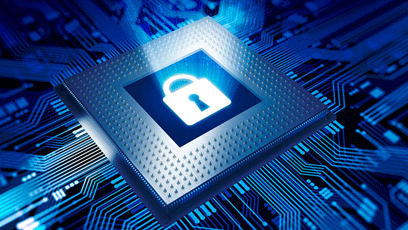The Current & Future of Cybersecurity Landscape in India
The Cyber security industry is truly evolving beyond its reach. Tell us why businesses have now started looking for a more advanced and robust security infrastructure?
With a strong push from government to digitise India, enterprises too have digitised their processes and are set to invest more in the coming years. Though technology has helped enterprises to scale their business, but it has also increased the fear of intellectual property theft, leaking of critical data from cyber criminals and disgruntled employees. All these years, security was treated as a technology issue, but enterprises have now realised that cyber security has heavy business implication and hence needs to be look as a key part of business strategy, probably involving the CEO directly. That it is no longer a perimeter that matter, but data does, has made enterprise to invest in data classification and ways to secure it, by getting all stake holders involved in a strategy which goes way beyond looking at only as a technology solution.
What According to you is the most challenging aspects which needs to be addressed by cybersecurity companies in cloud application?
SaaS applications are the biggest challenge for enterprises that are adopting cloud services to extend their technology and applications infrastructure. Accordingly to Gartner, where large enterprises use not more than 1-3 IaaS vendors, they typically use 20-900 SaaS vendors. Enterprises have very limited visibility in user activity over these SaaS application and are unable to enforce policies too. Cyber security companies not only need to identify SaaS applications, but also provide indepth visibility with contextual information of the application in use. Contextual intelligence technology will allow both visibility and control over network
usage by identifying various contextual information including data context for enterprises to understand the application usage like never before for a greater network analysis which, all these while was a challenge.
Where are we headed in terms of the future of the industry, market behaviour and technology advancements?
Advancement in technology will drive the cybersecurity market. Interconnectivity of machine and human will be a normal. IoT, virtual assistant, blockchain and 5G will be central to a lot of technology in the coming years. All our personal data would be stored in the cloud and cyber security would be more important than ever. Many cyber security policies would be actively driven by various governments, giving importance within their government and some with independent charge.
Attacks would become more lucrative and cheaper with bots doing most of the work in finding vulnerabilities and weak points in our infrastructure. Everyone would be a point of attack, whether governments, institutions, corporates and even end users.
Enterprise will move away from conventional security models of trusting everyone on the inside of an organisation can be trusted. Zero trust model would be the new norm, where trust would come from verification even for lateral movement within an enterprise.

Cybersecurity will need to become more sophisticated. With these kinds of attacks, huge data will be generated, which will be difficult for humans to analyse. AI and Machine Learning will play an important role to analyse these data and identify attacks, proactively.
With the growth in technology, new form of domain expertise would be required and we will see newer professionals trained in combating cyber attacks very similar to the defence of our country borders, the only challenge will be that we would not know our enemies. With data being spread across the network, in cloud and on devices, security would move from network to data security. Security products will evolve to analysing data, bring in the contextual intelligence to improve visibility and with the help of ML analyse large amounts of data and identify threats in real time.
Where are we headed in terms of the future of the industry, market behaviour and technology advancements?
Advancement in technology will drive the cybersecurity market. Interconnectivity of machine and human will be a normal. IoT, virtual assistant, blockchain and 5G will be central to a lot of technology in the coming years. All our personal data would be stored in the cloud and cyber security would be more important than ever. Many cyber security policies would be actively driven by various governments, giving importance within their government and some with independent charge.
With the growth in technology, new forms of domain expertise would be required, and we will see newer professionals trained in combating cyber attacks very similar to the defence of our country borders
Attacks would become more lucrative and cheaper with bots doing most of the work in finding vulnerabilities and weak points in our infrastructure. Everyone would be a point of attack, whether governments, institutions, corporates and even end users.
Enterprise will move away from conventional security models of trusting everyone on the inside of an organisation can be trusted. Zero trust model would be the new norm, where trust would come from verification even for lateral movement within an enterprise.
Cybersecurity will need to become more sophisticated. With these kinds of attacks, huge data will be generated, which will be difficult for humans to analyse. AI and Machine Learning will play an important role to analyse these data and identify attacks, proactively.
With the growth in technology, new form of domain expertise would be required and we will see newer professionals trained in combating cyber attacks very similar to the defence of our country borders, the only challenge will be that we would not know our enemies. With data being spread across the network, in cloud and on devices, security would move from network to data security. Security products will evolve to analysing data, bring in the contextual intelligence to improve visibility and with the help of ML analyse large amounts of data and identify threats in real time.
